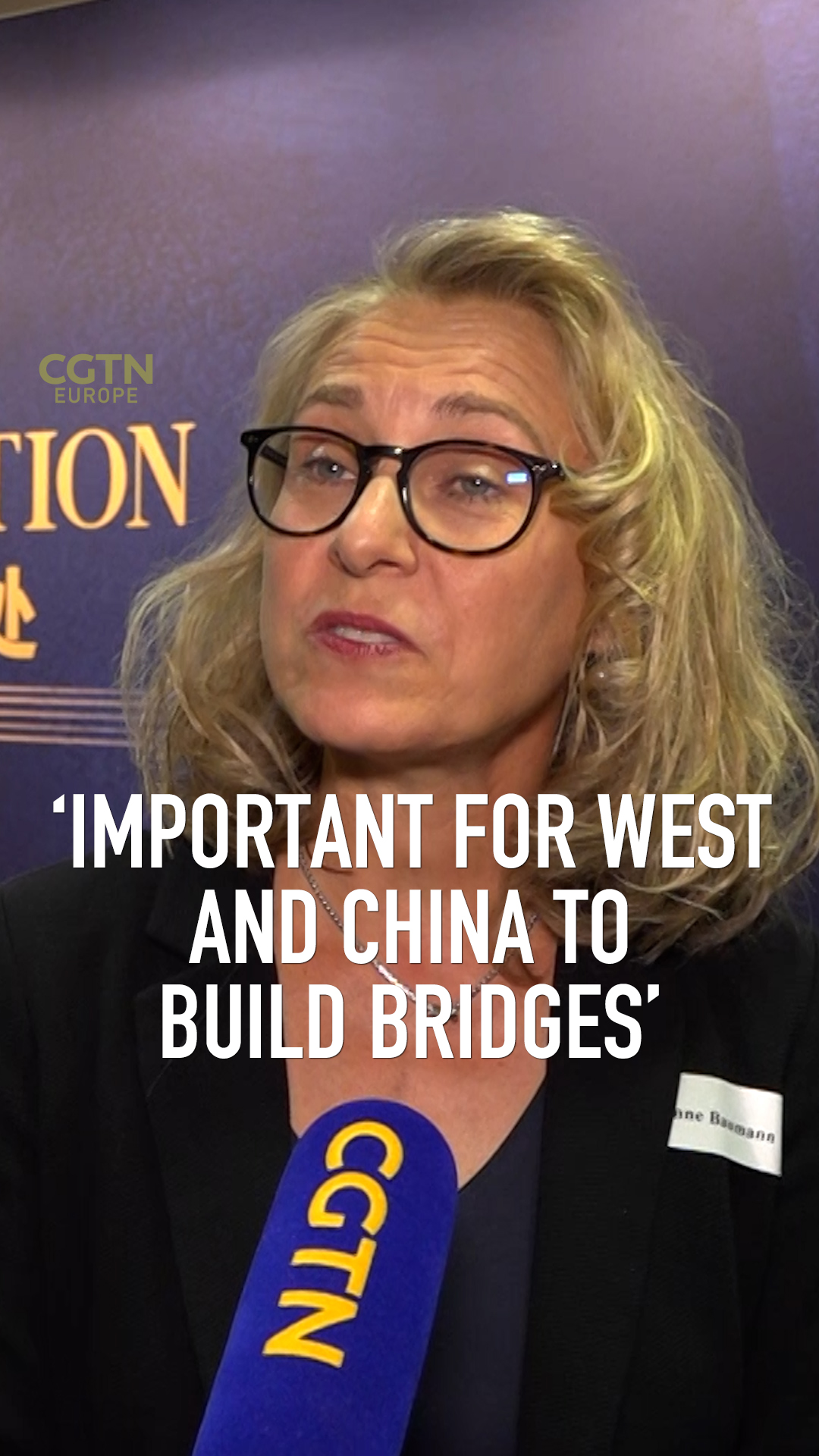
The Frankfurt Book Fair is underway in Germany and could play a small role in improving communication between China and Western nations. /CGTN.
The Frankfurt Book Fair is underway in Germany and could play a small role in improving communication between China and Western nations. /CGTN.
The Frankfurt Book Fair - the biggest event in the global publishing calendar - is underway in Germany and could play a small role in improving communication between the West and China.
The event dates back to the 12th century, but the modern version of the fair has been in operation since 1949 and sees publishers, agents and authors come together in the hope of sealing international deals for their works.
This year, CGTN is launching a new podcast at the fair, 'Stories of Xi Jinping,' a biographical series looking at how the Chinese President's past has shaped the leader he is today and a book, 'Global Thinkers.'
The theme of the launch was building bridges between Europe and China in uncertain times. China's Ambassador to Germany, Wu Ken, says everyone benefits when China and Europe work together.
"The fact that relations between China or Germany and between China and Europe are making great progress with the inclusion of reciprocity is also evidence that we have something that not only contributes to the global economy, but also directly opens up new opportunities for Germany and Europe. We therefore hope that Germany and Europe will continue to define our relations primarily as a partnership."
READ MORE
U.S. vetoes UN resolution on Gaza humanitarian access
Biden flies out of Israel after Arab summit cancelled
Citroen CEO expects Chinese competition
00:52

One of the global thinkers who contributed to the book is Slovenia's former President, Danilo Türk. He told CGTN that the Belt and Road Initiative - which has seen China invest in infrastructure projects in more than 150 countries worldwide - is misunderstood in some parts of Europe.
"People nowadays in the West have a slightly ideological view of Belt and Road as a kind of assertive policy of China," he said. "But that's a very limited understanding. Of course, China is pursuing its own interests, but there is a lot of space for the interests of everybody else. We have to figure out what the actual nature of our interdependence is. And once that becomes clear, then, of course, solutions will come much more easily."
The best way to build new bridges and maintain and strengthen existing relationships is to communicate better. But Susanne Baumann, the former Director of the Confucius Institute in Dusseldorf, says a lack of Chinese speakers within Germany's government is hampering communication between Germany and China.

CGTN attended the fair to launch a new podcast 'Stories of Xi Jinping' and a book 'Global Thinkers' ./CGTN.
CGTN attended the fair to launch a new podcast 'Stories of Xi Jinping' and a book 'Global Thinkers' ./CGTN.
"As far as I know, we have only one single member of the German parliament who is able to speak fluent Mandarin," she said. "And this person is not on the top level. So yes, we need to build more expertise on China, especially linguistic-wise, to have a direct interaction and to have the possibility to directly speak to each other."
The Global Thinkers Project and book is about improving communication between China and the West. Post-COVID, political leaders are looking to get back to doing that face-to-face. As the Board of the German Federal Association for Economic Development and Foreign Trade Chairman, Michael Schumann is well placed to know who is meeting whom.
"I can tell you that there is a lot of people to people exchange behind the scenes," he said. "There are many political delegations coming from China to Germany, talking to German members of parliament, to German politicians. And we can only hope that this helps to build more understanding again for each other and to balance our differences in a responsible manner and in a responsible way."

Subscribe to Storyboard: A weekly newsletter bringing you the best of CGTN every Friday